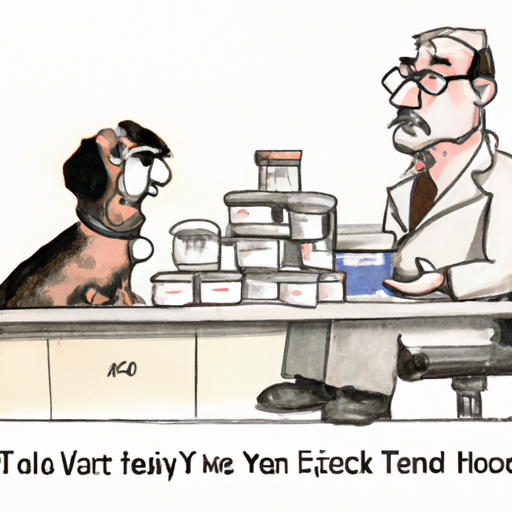As a loving caregiver for your furry friend, you understand that keeping your pet healthy is a top priority. One of the common challenges that dog owners face is dealing with fleas and ticks. These parasites not only cause discomfort and itching, but they can also transmit diseases. So, what is the best flea and tick treatment for dogs? Let’s dive into this topic to ensure you are fully equipped with the knowledge needed to protect your pet.
1. Understanding Fleas and Ticks (H2)
Fleas and ticks are external parasites that feed on the blood of their hosts. While fleas are small, wingless insects, ticks are arachnids, similar to spiders. Both can cause a range of health problems in dogs.
- Fleas: They can cause skin irritation, allergies, tapeworms, and anemia in severe infestations.
- Ticks: Ticks can transmit diseases like Lyme disease, ehrlichiosis, and Rocky Mountain spotted fever.
2. Types of Flea and Tick Treatments (H2)
There are various types of flea and tick treatments available. What works best for your dog will depend on your pet’s age, size, breed, and health condition, as well as the level of flea or tick infestation.
- Topical Treatments: These are applied directly to the pet’s skin, usually at the back of the neck. They are effective for about a month.
- Oral Medications: These are pills or chewable tablets that a dog ingests. They can kill both fleas and ticks.
- Collars: These collars repel or kill fleas and ticks. They can be effective for several months.
- Shampoos and Dips: These are more manual and labor-intensive methods of killing fleas and ticks.
- Powders and Sprays: These can be used as a spot treatment or for a full-body application.
| Type | Pros | Cons |
|---|---|---|
| Topical Treatments | Easy to apply, long-lasting | Can be messy, can wash off |
| Oral Medications | Fast-acting, no mess | Some dogs might refuse to eat them |
| Collars | Long-lasting, cost-effective | Some dogs might have a reaction to them |
| Shampoos and Dips | Immediate results | Labor-intensive, short-term solution |
| Powders and Sprays | Can be used for spot treatments | Can be messy, short-term solution |
3. Top Recommended Flea and Tick Treatments (H2)
Here are some of the top recommended flea and tick treatments for dogs:
- Frontline Plus: A topical treatment that kills adult fleas, flea eggs, and larvae, as well as ticks and chewing lice.
- NexGard Chewables: An oral medication that kills adult fleas before they lay eggs, and kills ticks.
- Seresto Flea and Tick Collar: Offers 8 months of continuous protection against fleas and ticks.
- Adams Plus Flea & Tick Shampoo: Besides killing fleas, ticks, and lice, this shampoo also contains soothing aloe, lanolin and oatmeal.
4. Preventing Flea and Tick Infestations (H2)
Preventing flea and tick infestations is just as important as treating them. Here are some tips:
- Regularly check your dog for fleas and ticks, especially after walks or playtime outdoors.
- Keep your home clean and vacuum regularly.
- Maintain your yard and keep grass short to lessen the likelihood of ticks.
- Consider treating your home and yard with appropriate flea and tick control products.
5. Frequently Asked Questions (H2)
Q: How often should I treat my dog for fleas and ticks?
A: Depending on the product you use, it could range from every month to every 8 months. Always follow the product’s instructions.
Q: Are flea and tick treatments safe for all dogs?
A: Most treatments are safe for all dogs, but some may have adverse reactions. Always consult with your vet before starting a new treatment.
Q: Can I use a cat flea and tick treatment on my dog?
A: No, never use cat treatments on dogs as they can be harmful or even fatal.
Q: What if my dog still gets fleas or ticks after treatment?
A: It could be that the treatment wasn’t applied correctly, or it’s not effective against the type of fleas or ticks your dog has. Consult with your vet for advice.
In conclusion, the best flea and tick treatment for your dog depends on various factors, including your pet’s unique needs and your particular circumstances. Always consult with a vet to determine the best course of action.



